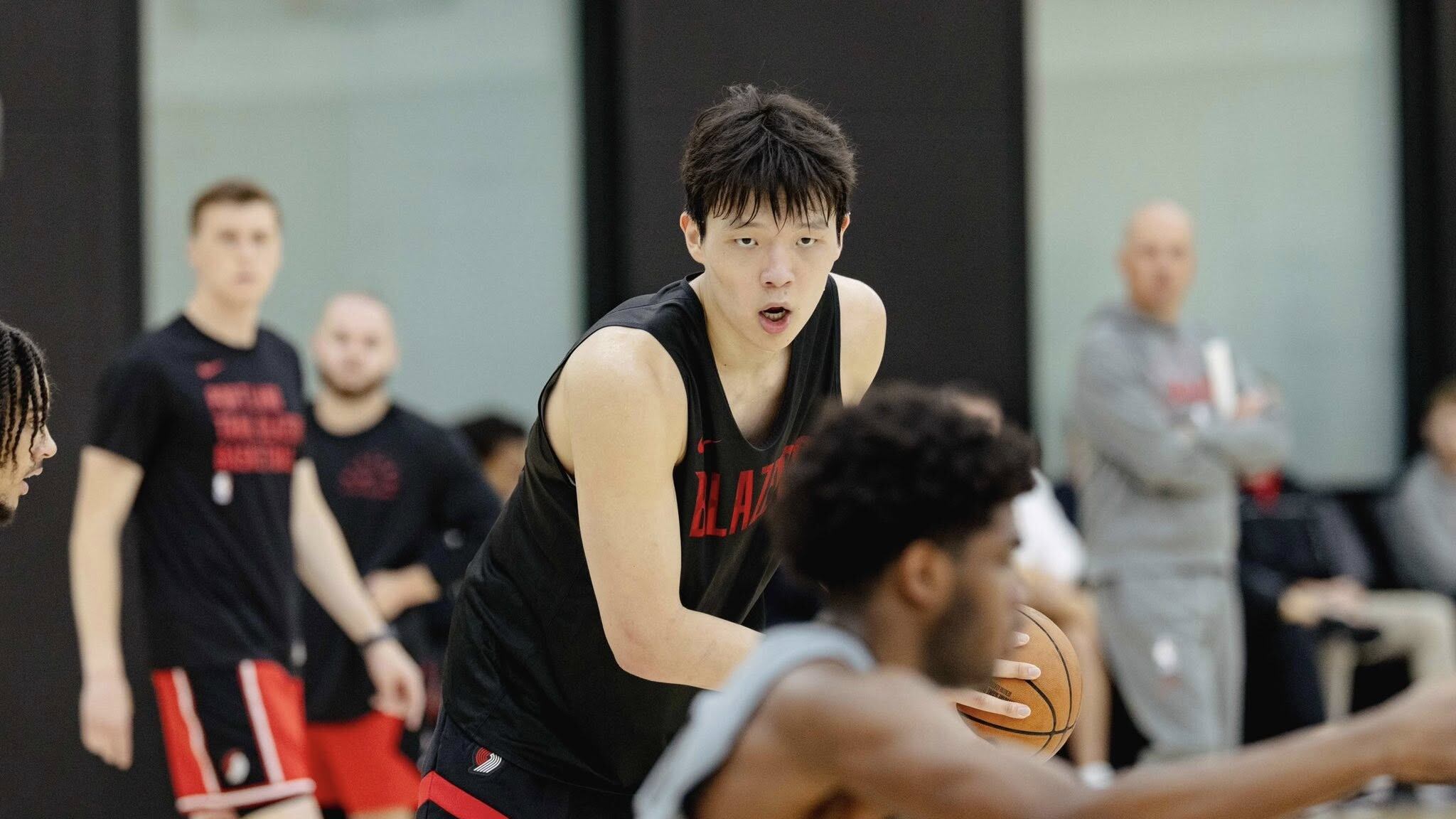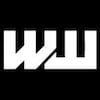On Wednesday night, the Trail Blazers shocked the basketball world by trading the NBA draft’s No. 11 overall pick to Memphis for future draft capital and the rights to the 16th pick, 7-foot-1 Chinese center Yang Hansen.
The selection mystified front offices around the league and most members of the media, with many of the latter objecting with an almost visceral distaste. Reactions varied from “a swing of epic proportions” to “the biggest head-scratcher in this draft” to “nobody had Yang as a first-rounder.”
“Literally nobody.”
Even Yang himself was stunned—when speaking afterward to reporters through a translator, he said being selected so high was “beyond his wildest imagination” and that he thought he’d be picked at the end of the first round. (More accurately, he spoke to English-speaking reporters through a translator—six of the 10 questions posed to Yang were in Mandarin.)
“We decided to do what some would call a reach” was the way Blazers general manager Joe Cronin characterized the events he precipitated at Brooklyn’s Barclays Center, where Yang had been drafted out of his seat in the arena’s lower bowl ahead of several players invited to the draft’s green room seated below him. On his way to shake commissioner Adam Silver’s hand onstage, Yang was greeted by his agent, Rich Paul, who embraced him in a hug.
Paul, the league’s defining power broker of the past decade and a half, was a telling presence beside Yang, who was a day away from both turning 20 years old and becoming much more famous than he would probably care to become.
It would be hard to overstate how important basketball is as a cultural force in China, or how much the NBA would like to see Yang become its first relevant Chinese-born player since Yao Ming retired in 2011.
The league is still recovering from 2019, when then-Houston Rockets general manager Daryl Morey posted a tweet supporting the pro-democracy protests in Hong Kong. The backlash was immense, with institutions throughout China calling for Morey’s firing and cutting the league off from the country’s 300 million-plus NBA fans by canceling broadcasts and pulling products off shelves.
The league went into crisis management, with C Silver calling Morey’s comments “regrettable” and superstars like LeBron James and then-Rockets guard James Harden, both immensely popular in China, wading into geopolitics and distancing themselves from Morey’s comments.
Part of the reaction was due to the Rockets’ longtime status as China’s team, going back to Yao’s arrival in Houston as the top pick in the 2002 draft. (His former co-star Tracy McGrady had his jersey retired by the Qingdao Eagles, Yang Hansen’s former team, after playing one season in China’s CBA at the end of his career.)
All of which is to say the Blazers, merely by having Yang on their roster, instantly become one of the most popular teams in China. His jersey will likely be among the league’s bestsellers.
It should be noted that acquiring Yang—and his fan base—would appear to raise the value of the team at a time when it is up for sale. But it would be nonsensical to think that Cronin and the team’s front office would stake their professional reputations on drafting a player based on economics for an ownership group that they won’t work for in a year.
This line of thinking is also unfair to Yang as a player. Yang is legitimately talented. He appears to have the frame, strength and competitiveness to play in the post in the NBA. What separates him, and what made the team spend a premium pick on him, is his passing and overall feel for the game. This has caused people on the internet and one anonymous member of the Nuggets organization to dub Yang the “Chinese Jokic” in homage to three-time MVP Nikola Jokic, the game’s best-passing big man. (Jokic himself was a second-round pick, selected while ESPN was airing a Taco Bell commercial.)
There will be immense pressure on Yang to establish himself as an effective player. As the only current Chinese-born player in the NBA, he’ll have a sizable media contingent following him for the rest of his career.
The language gap will persist for several years but probably won’t hinder his development in a meaningful way; players like Alperen Şengün, Vlade Divac and Yao all faced the same question at the start of their careers but were perfectly fluent in basketball. Yang seems to be a thoughtful and intelligent young dude. He has a good nature about him. He seems comfortable with, if not somewhat bemused by, the attention he’s getting.
How he fits into the Trail Blazers’ roster next year, however, remains to be seen. Last year’s No. 7 overall pick, Donovan Clingan, is entrenched above Yang on the team’s depth chart at center. Three veteran frontcourt players—Deandre Ayton, Robert Williams III, and Jerami Grant—currently stand in the way of Yang’s path to regular minutes, but all three appear destined to be moved at some point before next season’s trade deadline.
Over the course of this week, in which they also traded Anfernee Simons to Boston for veteran guard Jrue Holiday, Joe Cronin and the Blazers’ front office have redefined what it means to shoot from the hip. They’ve made huge bets and moved all in on their vision of the team. It just isn’t one that anybody else saw coming.

